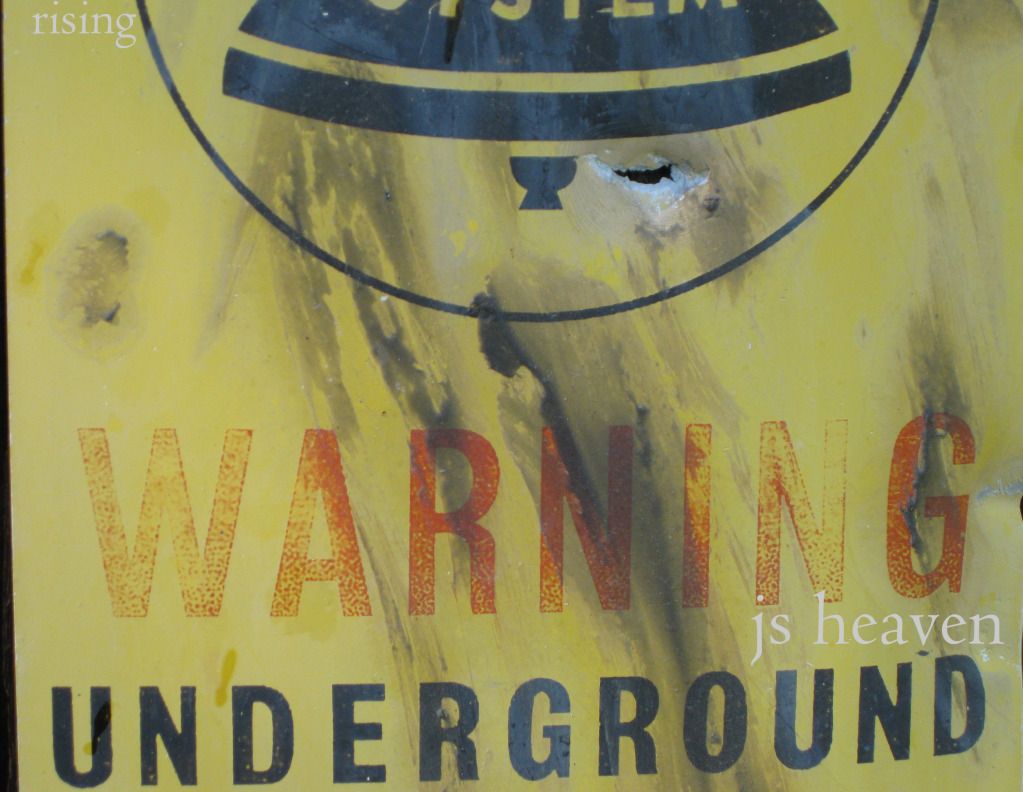Fast forward 15 years, and i am now finally getting around to examining old favorites, trajectories and blind corners barely navigated. I have found myself blind obsessed with anything resembling occultish folk music; whether that be the soundtrack to The Wicker Man or a Fairport Convention record, or even old Blues. I cannot properly describe what has ignited this fascination (it was mostly a chance encounter with I AM THE LAKE OF FIRE), and i just feel the need to surround myself with incantations and prayers.
This whole community of musicians, like Douglas P. and David Tibet; John Balance and Chris and Cosey - they all have the reek of incense and candle wax about 'em. But they're all making different strains and strands of the sound. Death In June's offshoot came to be known as 'Industrial Folk' or simply 'Neofolk'. His lyrics typically explore Germanic Heathenery and runes, World War II, anti-Christian sentiments, and other vague ennui about living in general. Whereas once i found most of these artist's works to be pretentious in the extreme, i have learned a certain fondness for proper British vocals incanting Romantic poetry, like Syd Barrett scoring an Alfred Lord Tennyson sonnet. As usual, (and this is typical of any attempt at writing about music), once my interest has been engaged, i begin to listen further and deeper. I am noticing new intricacies on BWEWTSS; the oceanic synth on album opener "Death is The Martyr Of Beauty" or the filigree of muted on the title track. Existential folk ballads have never sounded so good. Turns out that four of these songs, "He's Disabled," "The Mourner's Bench", "Because of Him", and "Little Black Angel" are covers or re-interpretations of Jim Jones' People's Temple Choir, he of the toxic purple Kool-Aid.
Part of why this record stands out to me is that i had to go to great lengths to procure it. I used to take the train up to a record store called Evil Clown on Halsted in Chicago, that would have masses of Belgian and Japanese imports from Dead Can Dance, DIJ, Coil, NWW, Z'ev. All those names you read in books.... You could hang out there and listen to CDs, thumb through magazines. At that time, these imports would run $30 a bang, and you would spend hours spiralling over decisions, losing yrself in cryptic b&w album art, deciphering lyrics, swimming in runes and mysticism. These were the first forays into illumination, that would later haunt my every waking breath. Due to restricted access and funds, not to mention the romantic associations of Chicago's grey pavement and dark culture, these records made an imprint on the nervous system, a mythological resonance. It doesn't mean that they're good, however. Part of what we're charged with, now, is to look at the past without rosy goggles, to call 'BULLSHIT' when necessary, but also to not discredit something merely because its old, or has already said its piece. Records still have the ability to transmit this radioactive specter, but not when yr just clicking down the line, sucking down records like a tube of Pringles. Any song is its own world, capable of getting lost in. So much magick just waiting to be discovered, in appreciation. And i'm here to tell you, that certain music, when approached with appreciation and an open mind and ears, can really ignite some fireworks in yr psyche. I can honestly say, after 15 years of listening to experimental music, that i am a better person for it.
I find the romantic and surreal air surrounding this recording, with its rich nuanced production, to be inspiring and educational. Douglas P. shows how you can re-interpret the classic folk/pop medium into transcendental poetry. The horns and bird-calls and organs and ghostly vocals keep the listening engaging, lurching forward, falling inward. The 40 minutes of BWEWTSS? are over before you know it, passing like a Kubla Khan dream. I can hear strains of DIJ's pagan poetry in the apocalyptic monologues of A Silver Mt. Zion and in Julian Cope's later adoption of the druggy druid mantle. If Bob Dylan stood for the New, Weird America, then Douglas P. David Tibet John Balance Genesis P-Orridge stand for the Old, Weird Britannia.
I am excited to get back into Death In June, and to also rediscover the post-punk/Industrial Underground of late '70s/early '80s England. Fucking stoked that this stuff is around and available, it was like a fucking moldy grail for the longest time. One more brick of the Akashic Records arises.
Should you find yrself intrigued, and want to know more, Deathinjune.org is a treasure trove of articles, interviews, rare recordings, and interesting links, to shoot you further down the spiral.


This comment has been removed by the author.
ReplyDeleteThis comment has been removed by the author.
ReplyDelete
ReplyDeleteWhat a great article. Thanks for sharing. We are always looking to innovate and carry the industry forward by sharing great practices. What are your thoughts on digital advertising in regards to SEO, Graphic Design and Content? We have seen it all over the map from 500 word pieces to 2,500 word pieces. Not to mention the new hipster designs and parallax themes. What are your thoughts? Come check us out some time. Would love to hear what you think about our blog articles too.centermassmedia.com